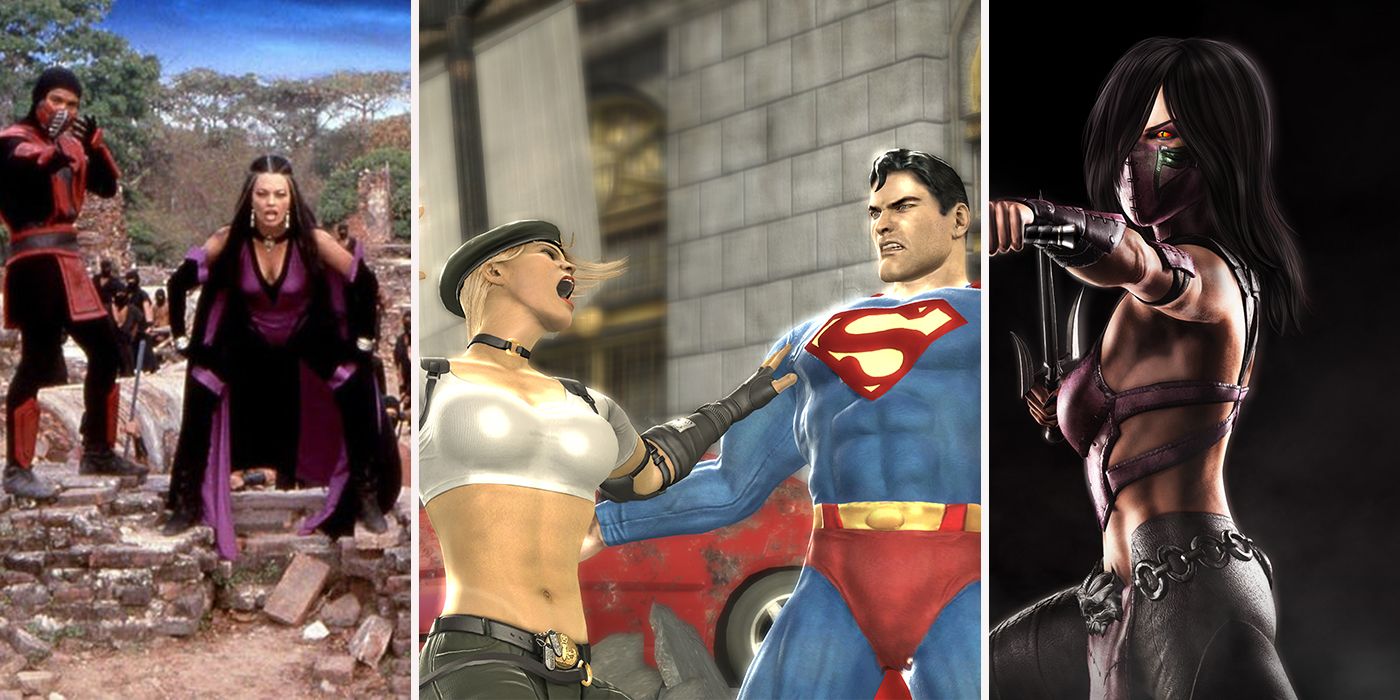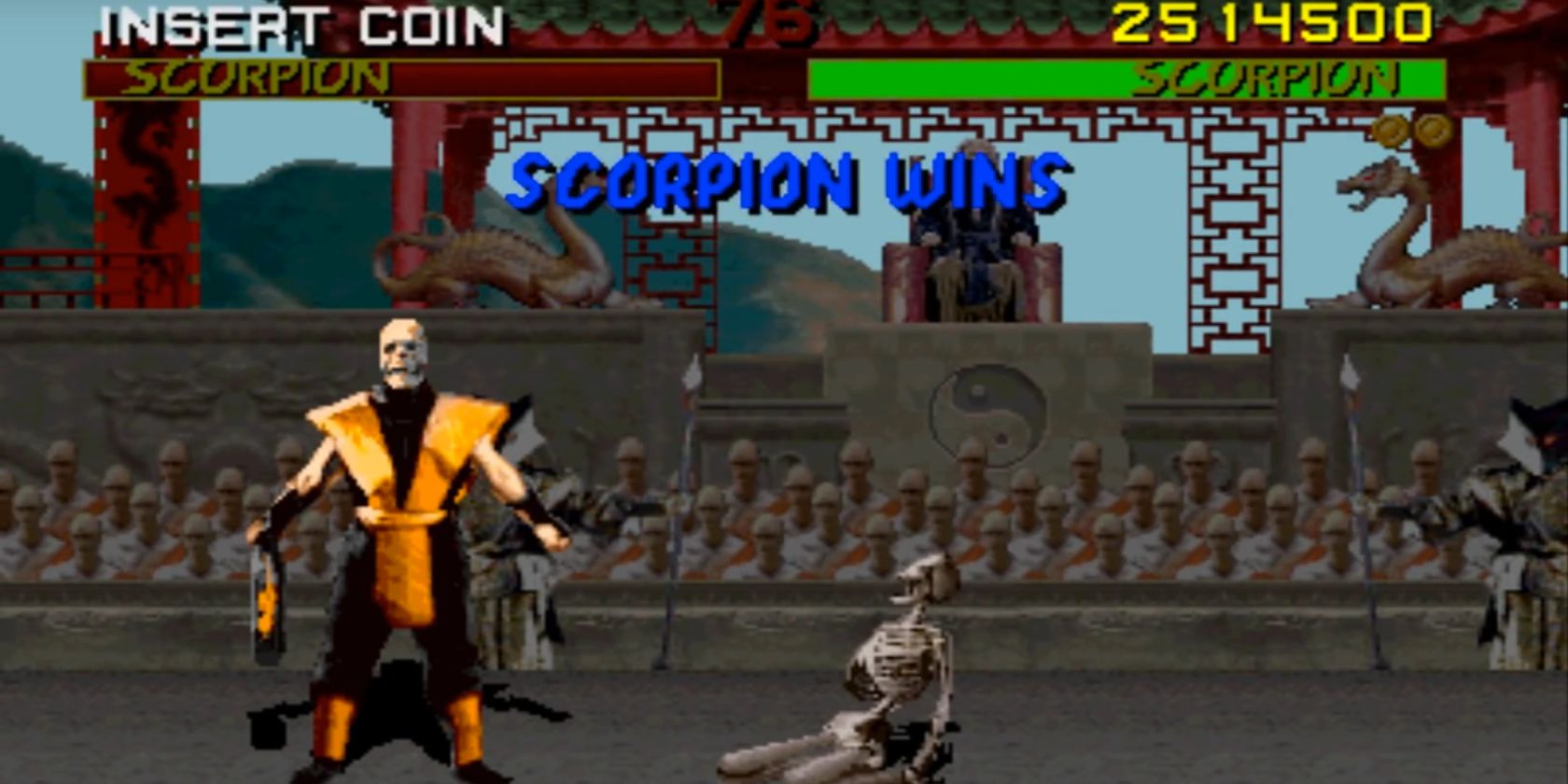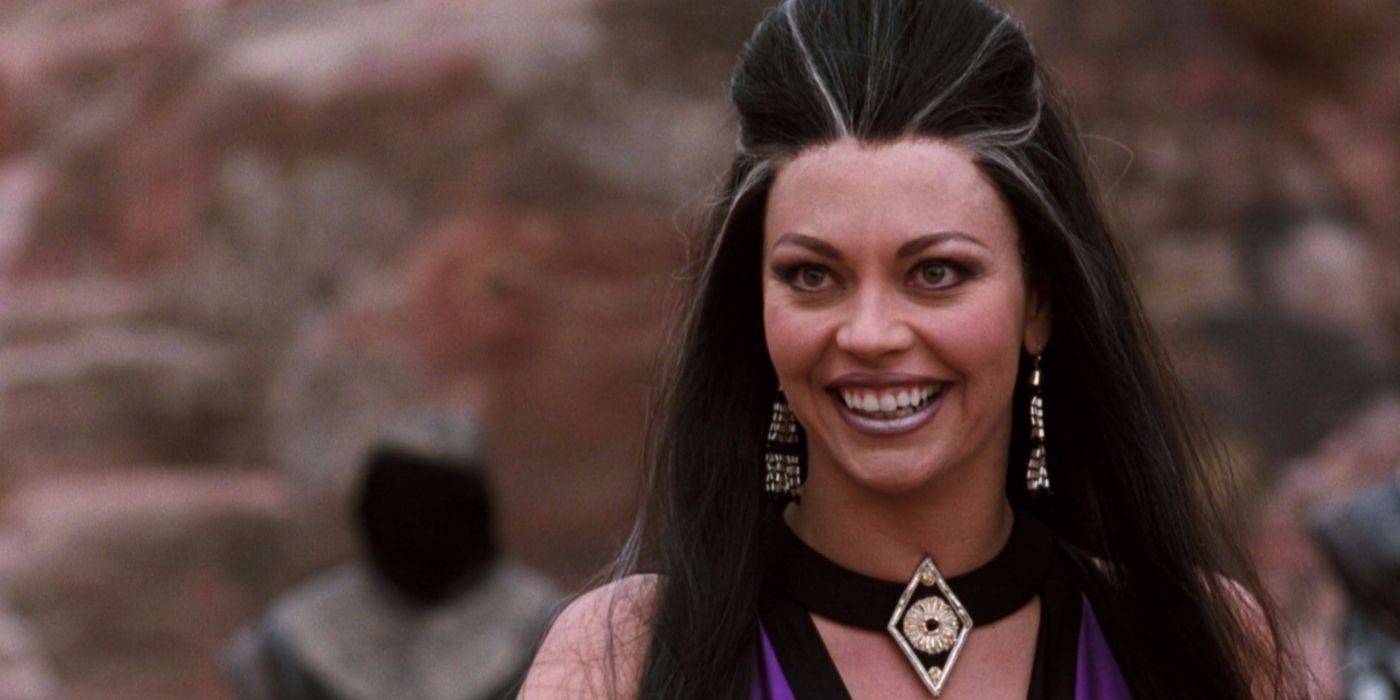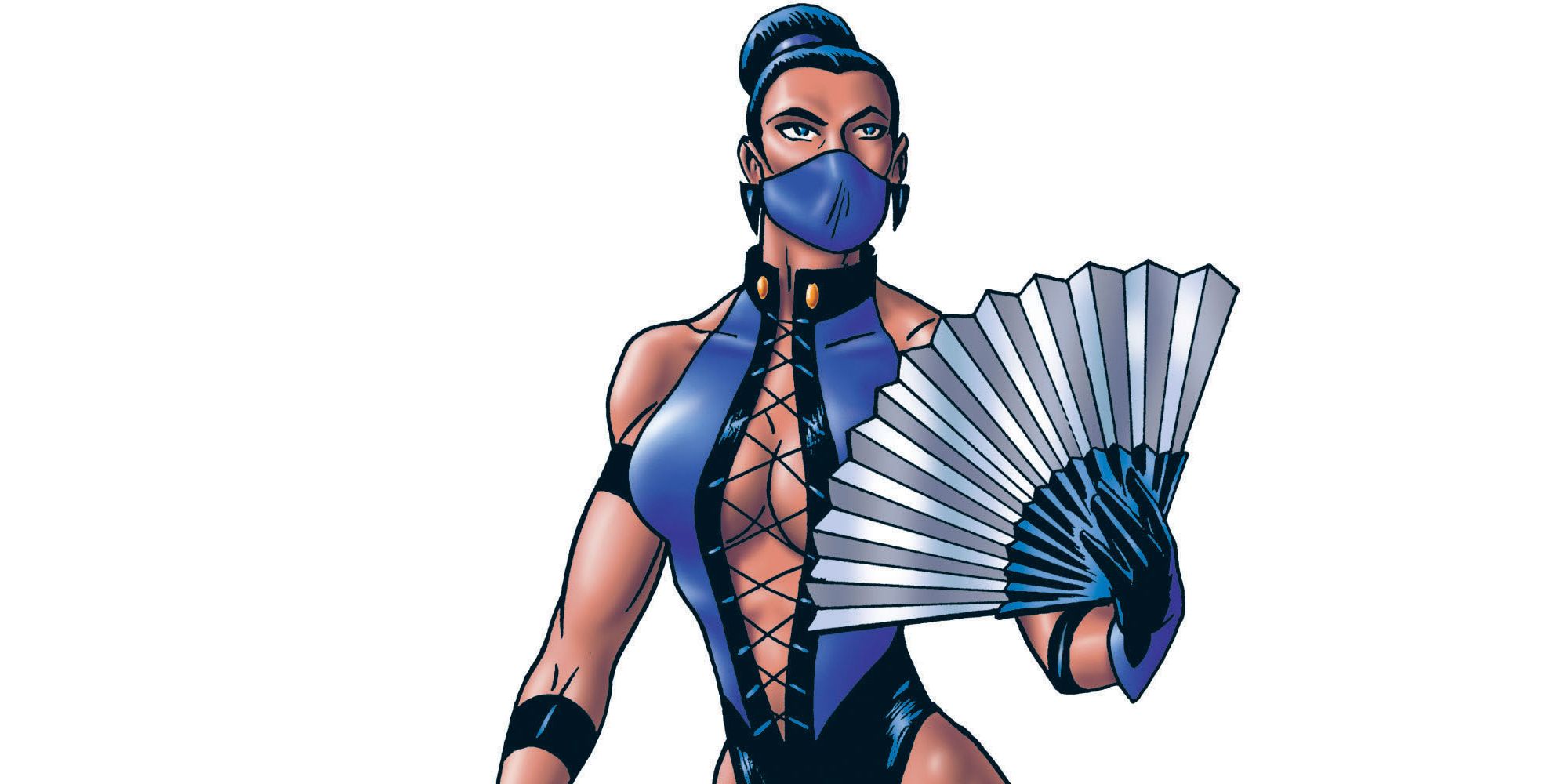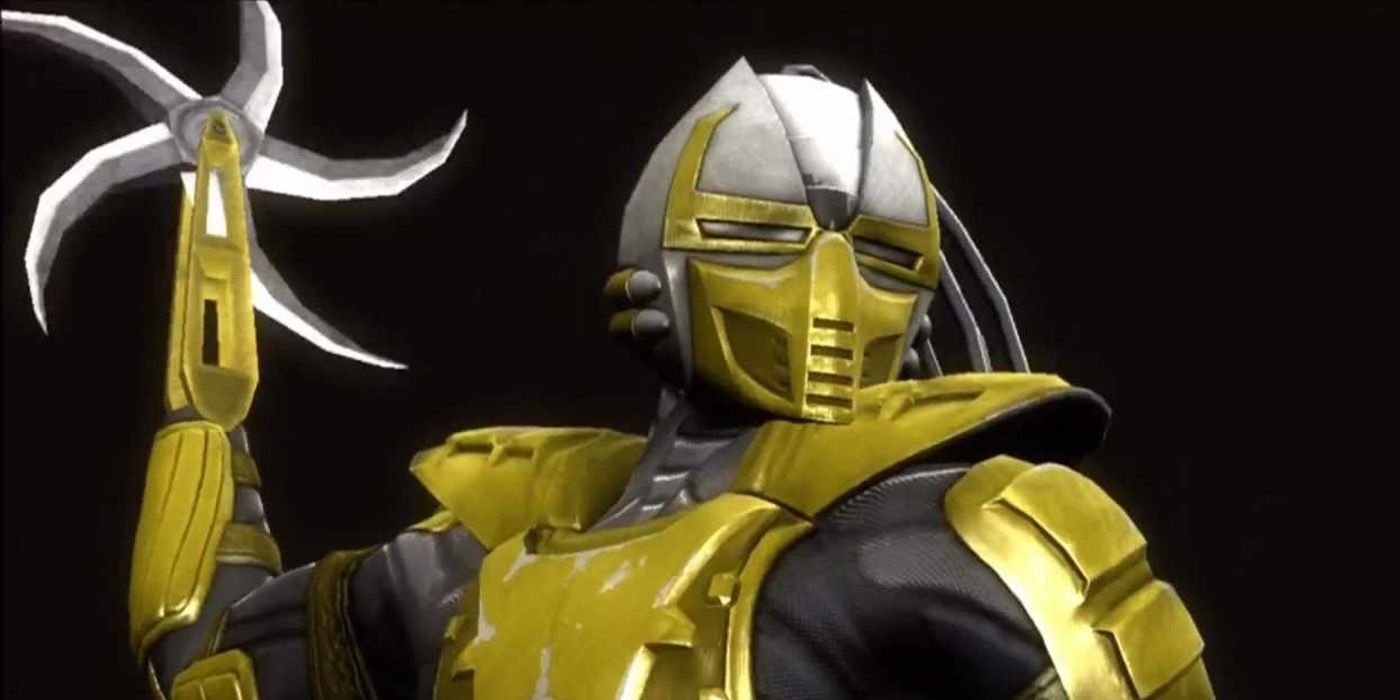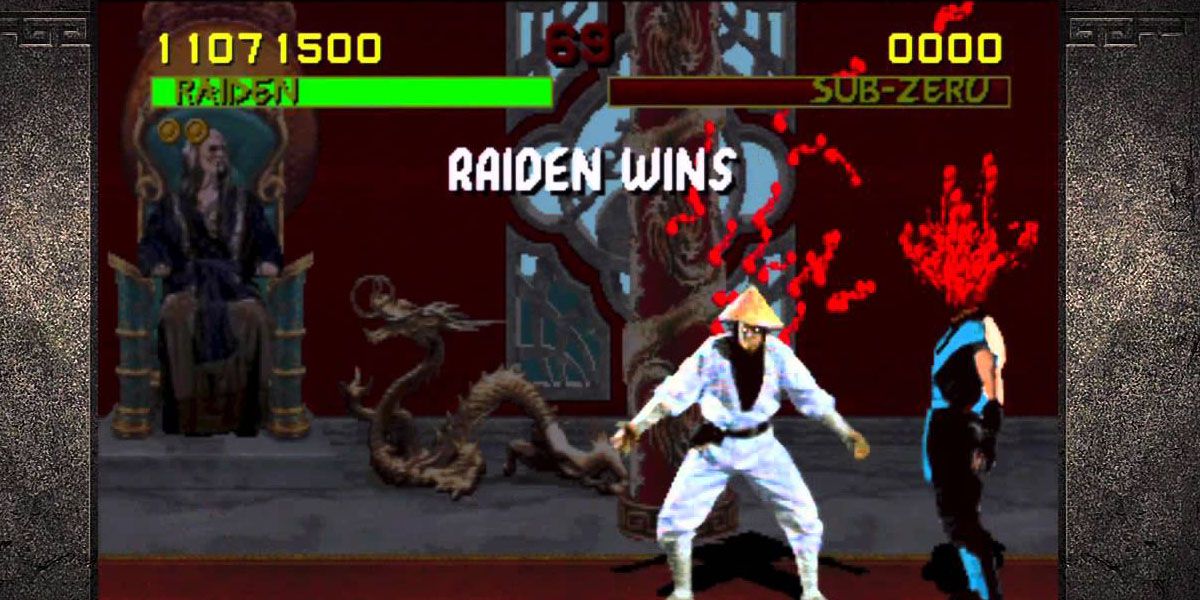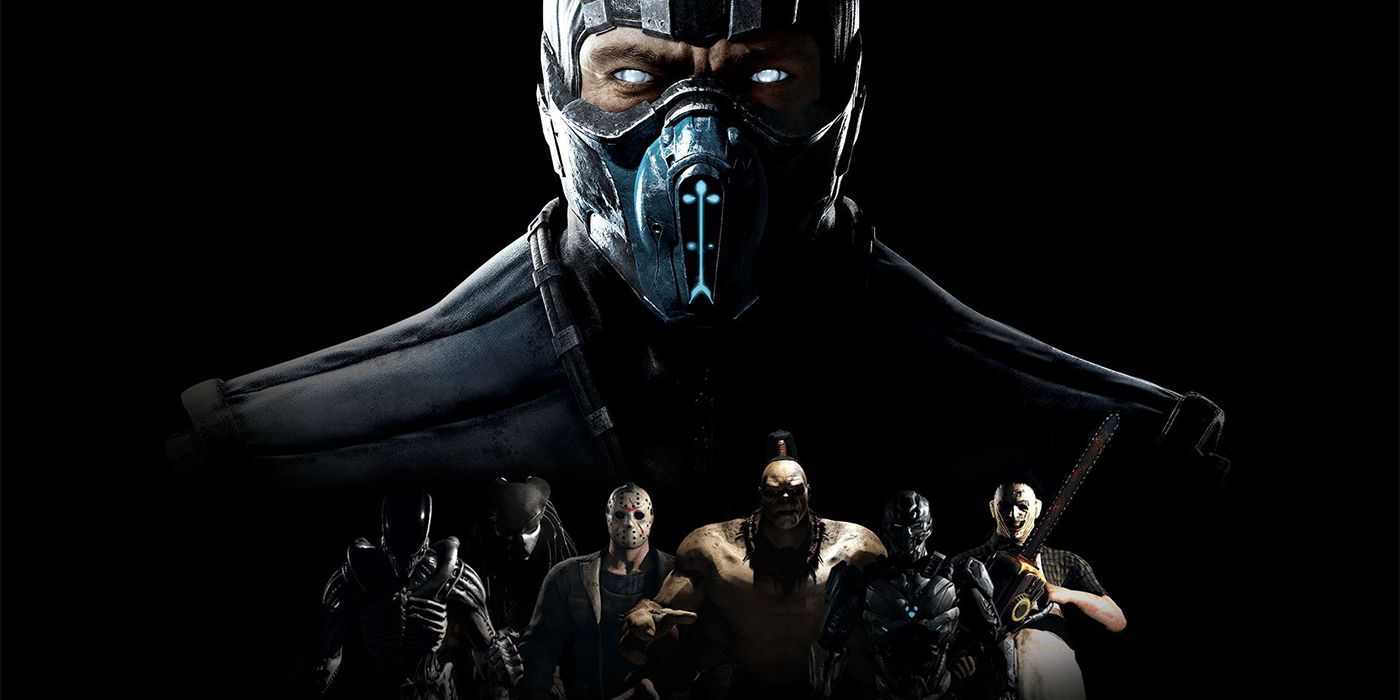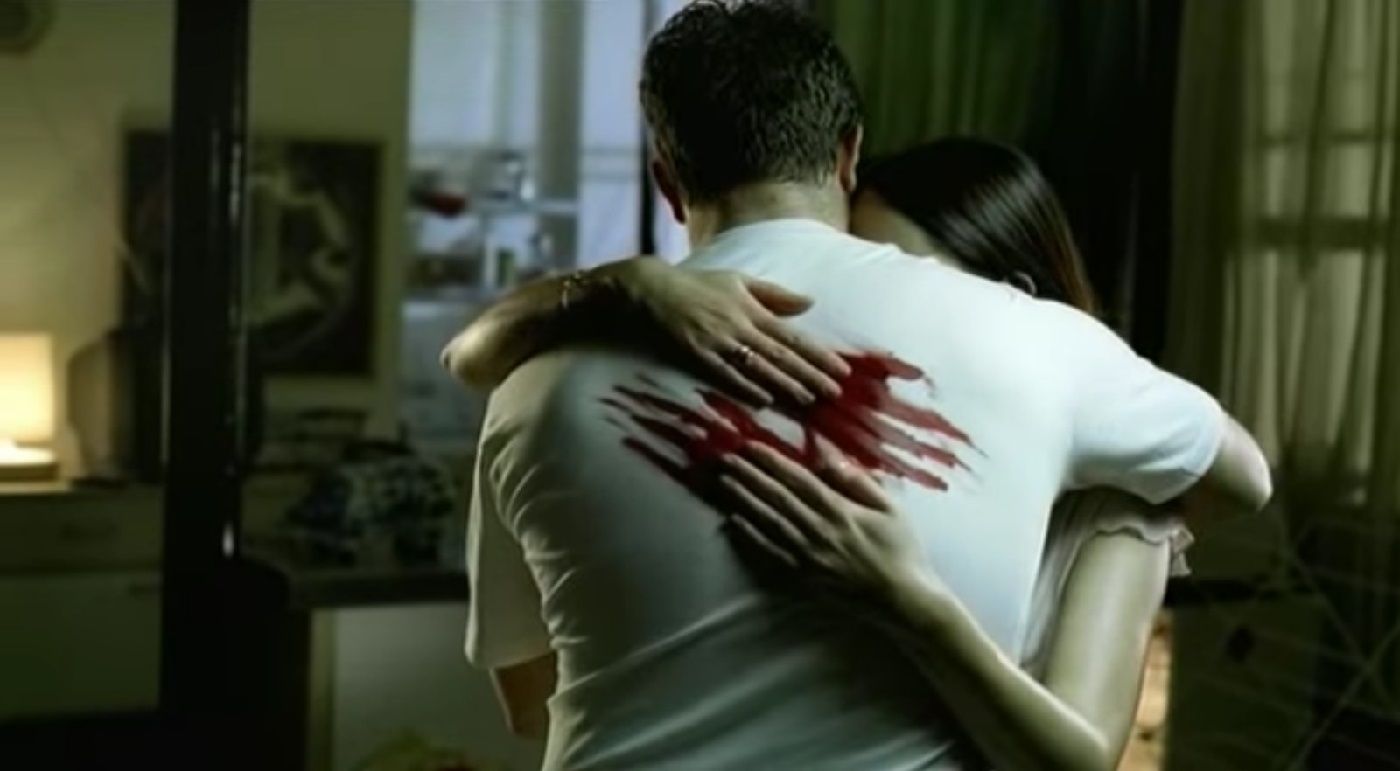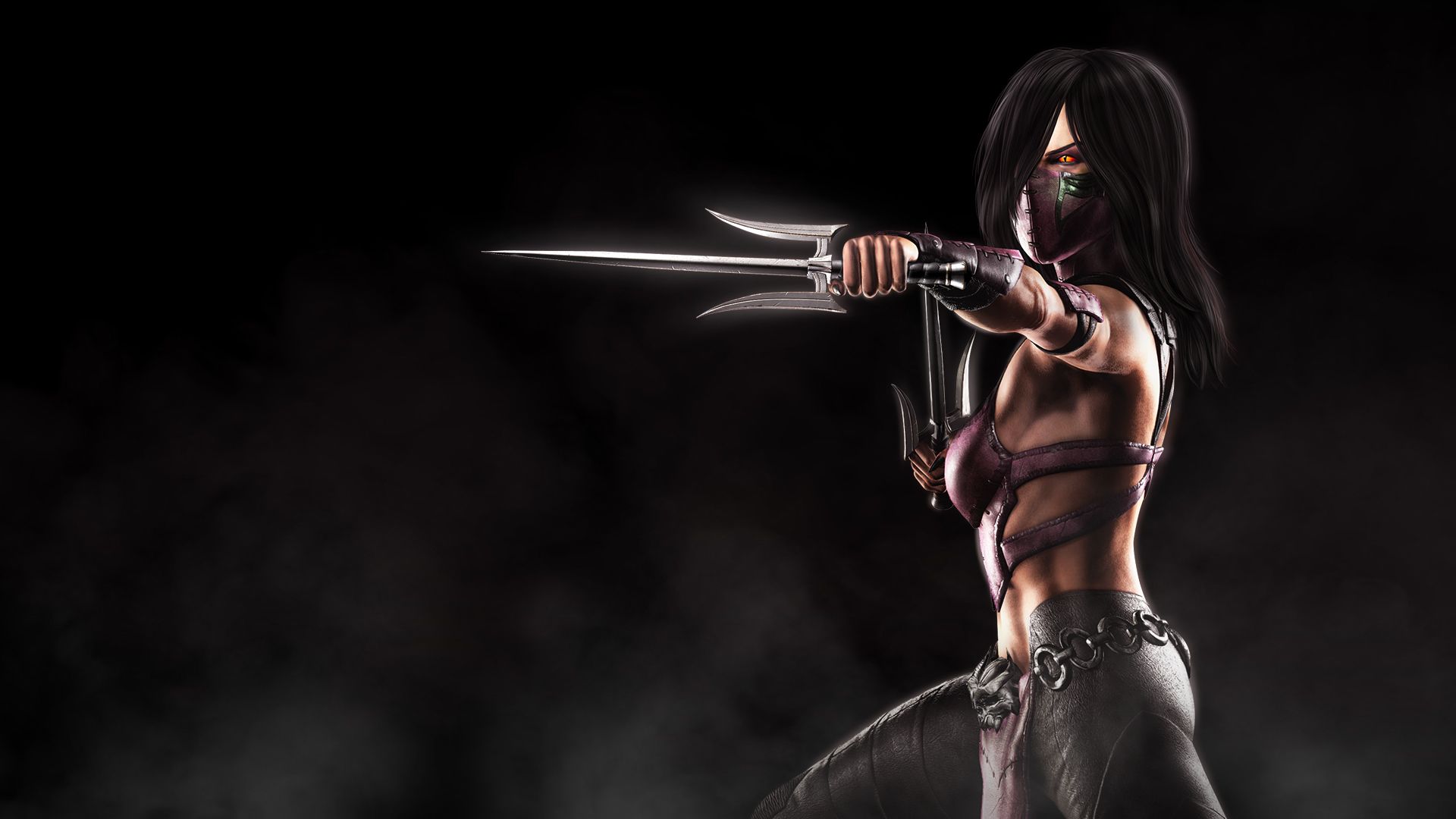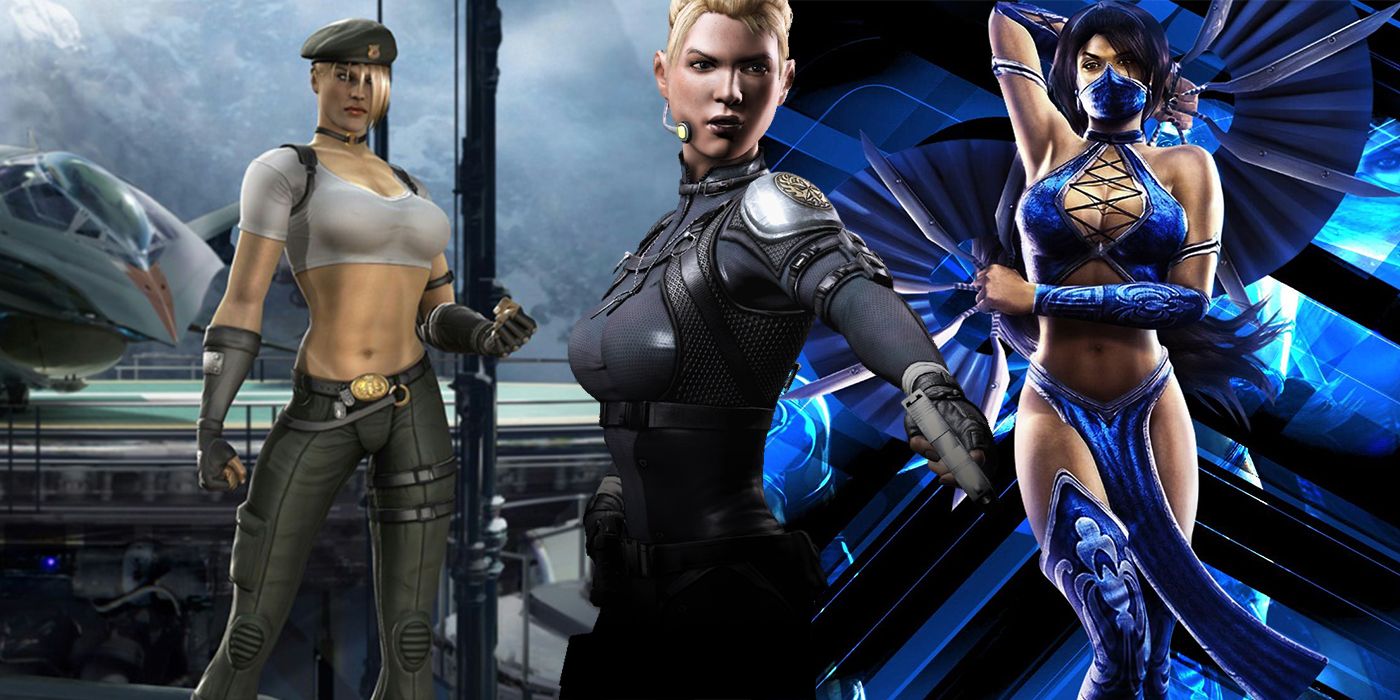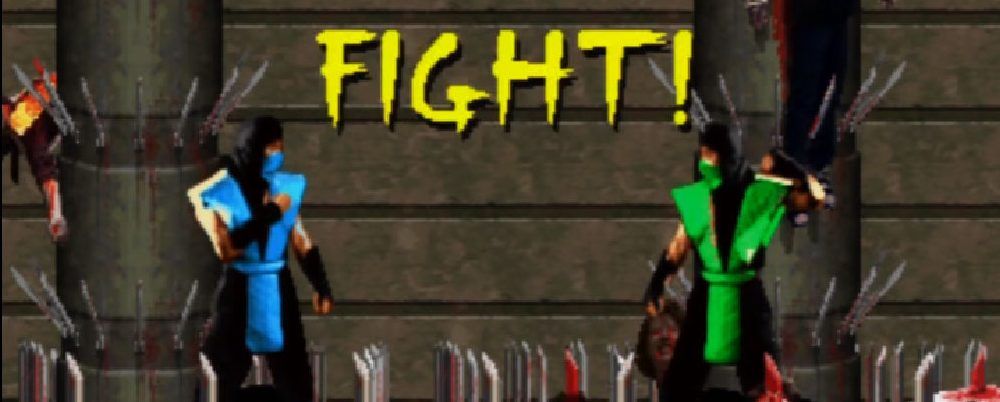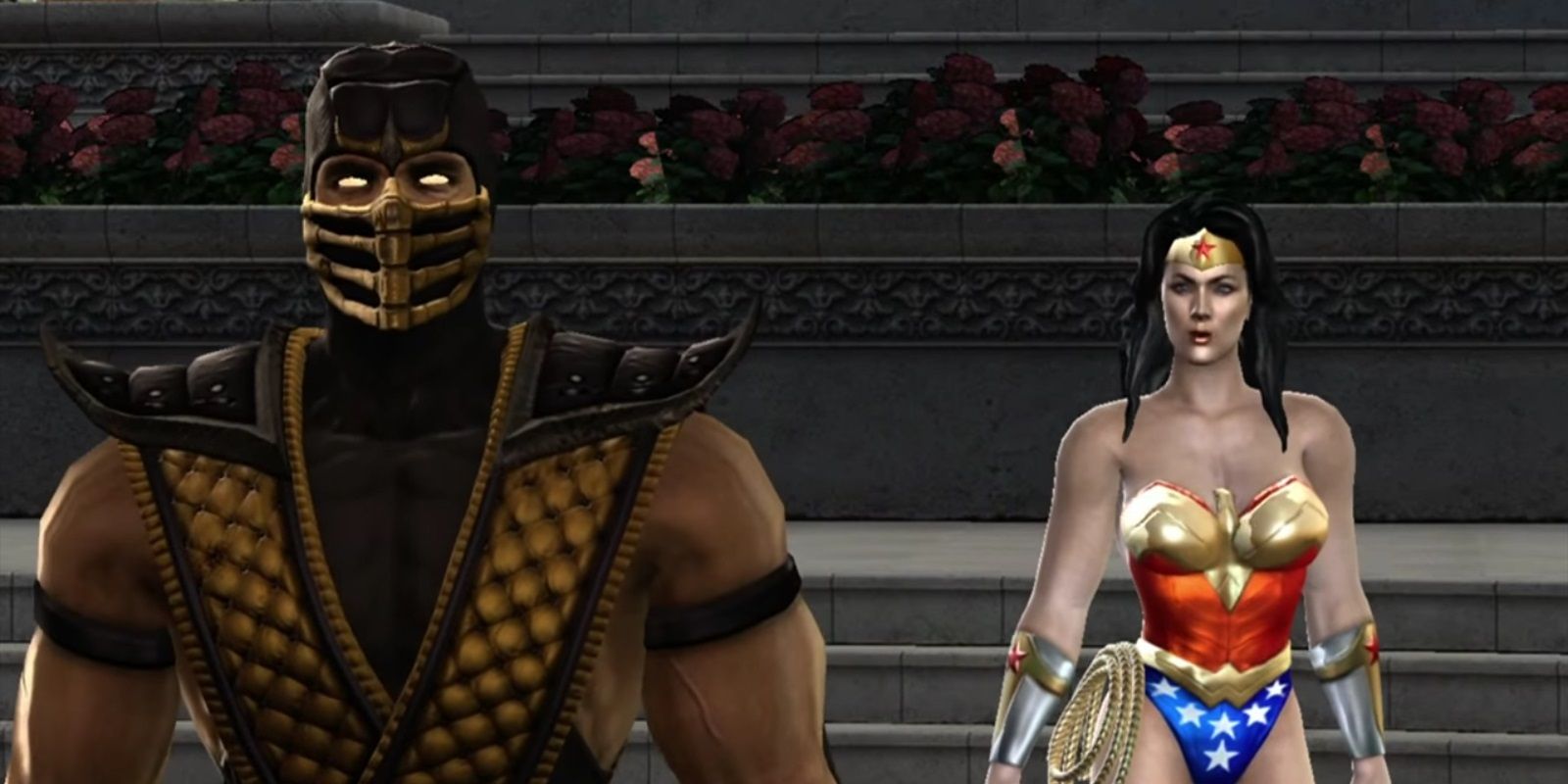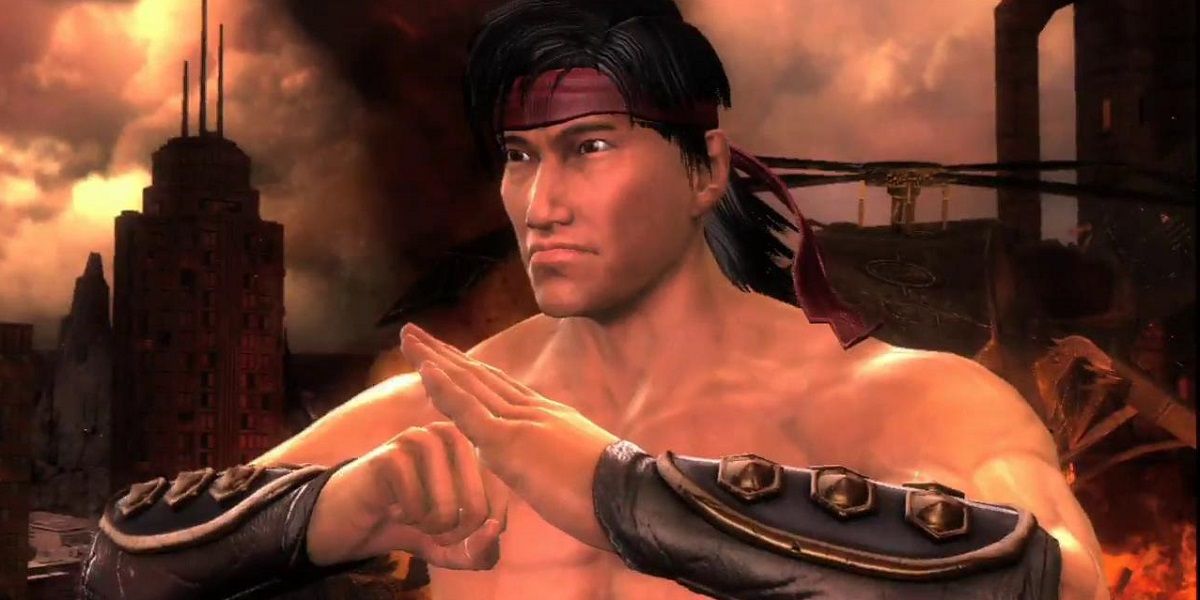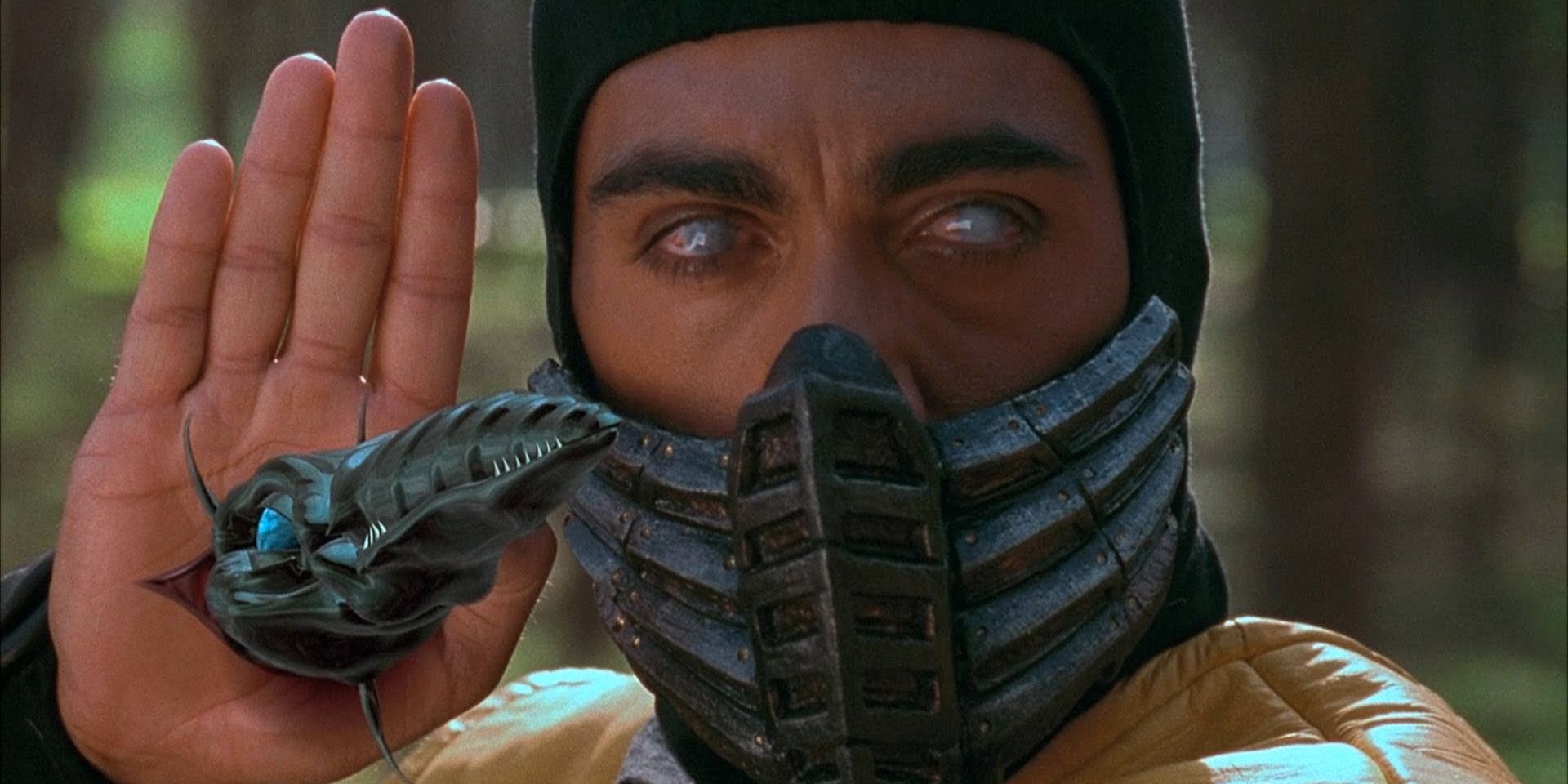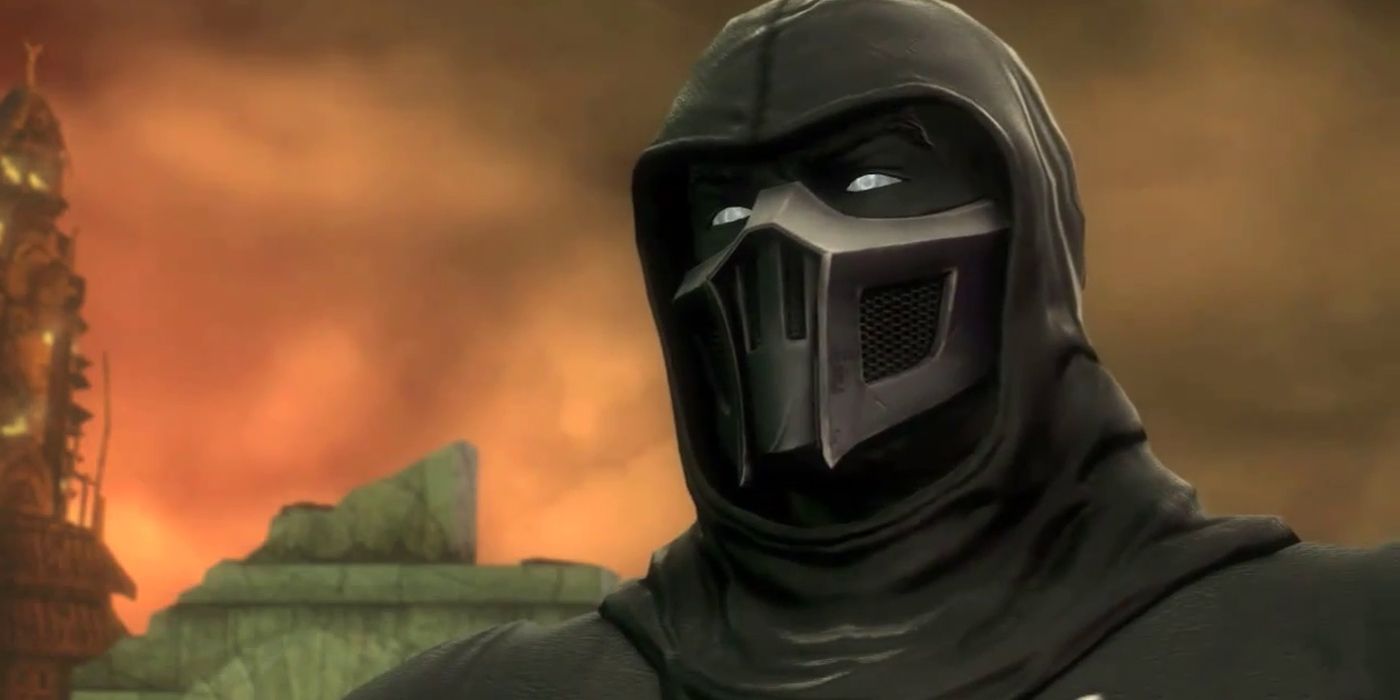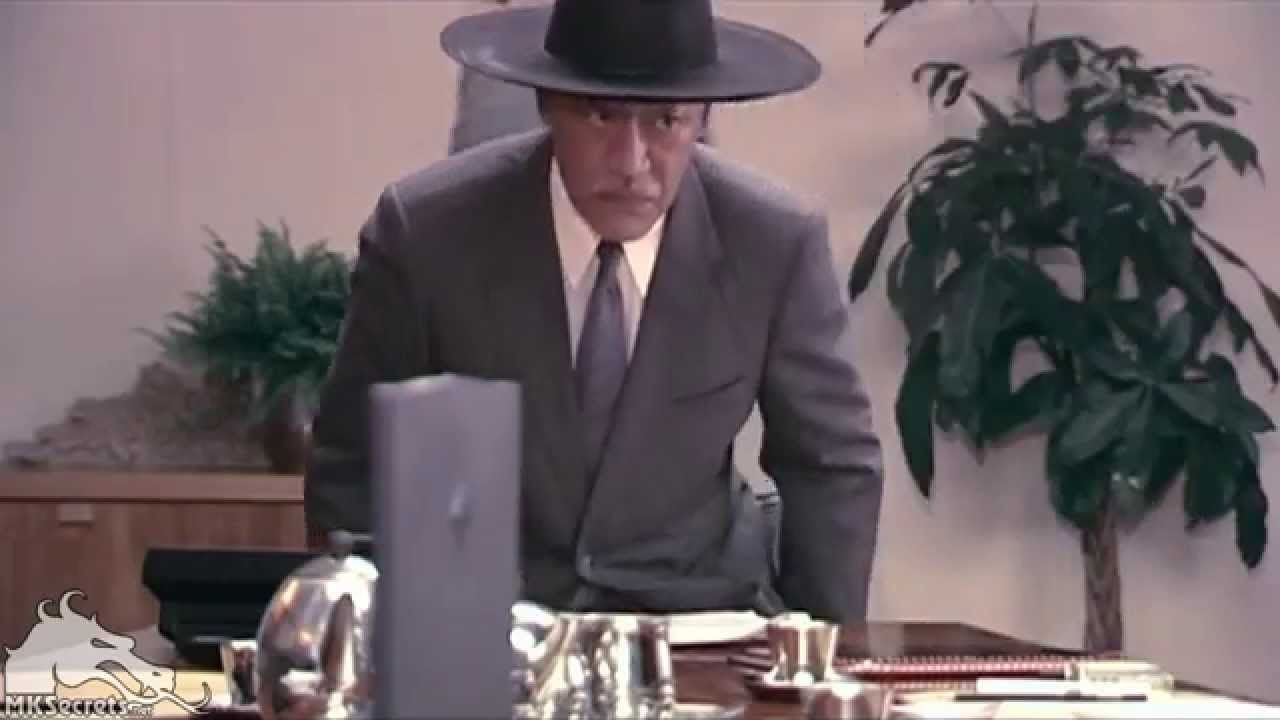Though there have been many controversial games over the years, Mortal Kombat is the franchise that has endured the longest while creating the most headlines. Sure, nowadays mature titles are something we see on a regular basis, but back in the early ‘90s, gaming still had a family friendly image for the most part. There were a few franchises that bucked the trend, like Duke Nukem, but most of them have fallen by the wayside due to their concept not standing the test of time. Mortal Kombat has endured, though, continuing to push the boundaries as much today as it did when it debuted.
Everyone knows that Mortal Kombat is violent, but that’s not the only thing the franchise has done to raise eyebrows and cause controversies. Just when people think they have finally gotten used to what the series has to offer, it finds a new way to steal the spotlight again. So we’re looking at what this iconic franchise has done to get people talking time after time.
These are 15 Kontroversies That Almost Destroyed Mortal Kombat.
UNPRECEDENTED VIOLENCE LEADS TO RATINGS SYSTEM
This is the most well-known controversy Mortal Kombat has created, but it's also the most influential. Before games like the original Mortal Kombat started pushing the envelope on violence, there were no ratings on any video games unless the creators decided to put something on it themselves. Unwitting parents could as easily pick up the new Mario game for their kids as they could a game like Friday the 13th.
Games like the original Mortal Kombat and Night Trap were the tipping point in 1992 that led to government officials stepping in to say there were not going to allow this kind of content to go unregulated any longer. They demanded that either the video game industry do something about it, or the government would. The game industry complied and the result was the ESRB rating system, which has been used to classify game content ever since.
EVERYTHING ABOUT MORTAL KOMBAT: ANNIHILATION
When the first Mortal Kombat movie came out it seemed like the curse of terrible video game movies had been broken. Sure, the Street Fighter movie was bad, and the Super Mario Bros. movie was terrible, but people generally liked the Mortal Kombat movie and it was financially successful. So it was only natural a sequel would be made. Unfortunately this wound up being one of the most infamously bad things the franchise ever produced.
Even the actors from the first movie weren't fully on board, with Johnny Cage's actor being so disinterested that he only agreed to appear if his character was killed off in the opening minutes of the film. The acting was terrible, the writing was laughable, and the costumes were ridiculous. The movie was panned and barely recovered its investment. And yet, some fans still find enjoyment in the film. This has led people to a debate: is Mortal Kombat: Annihilation so bad it's actually an enjoyable comedy, or is it just plain bad?
RUMORS OF REVEALING FATALITIES
Back in the '90s, no one knew for sure how much video games could get away with. Violence was becoming more common in games, and some titles, like Duke Nukem, would even hide raunchier secrets like strippers in the game. A lot of fans figured if any game would continue to cause scandals that it would be Mortal Kombat. Thus the rumors of there being "nudealities" started.
By Mortal Kombat Trilogy, the franchise had developed much more than just fatalities. The games now also included animalities, brutalities, babalities, and friendships all as secret ways to end a fight. So could it be that the games also featured nudealities? Turns out even Mortal Kombat would not go that far.
Besides, while the franchise does have some attractive characters, would you really want to see someone like Goro unclothed? That would just punish yourself as much as the person you defeated.
TEENAGER WHO STABS FRIENDS SAYS MORTAL KOMBAT INSPIRED HIM
While most of these controversies are ultimately harmless and can be looked at in good fun, this court case from 1997 was unfortunately all too tragic. Then thirteen-year-old Yancy Salazar wound up killing fellow thirteen-year-old Noah Wilson with a knife. At first it just sounds like a sad incident involving two kids, but oddly enough Mortal Kombat was drawn into things when Wilson's mother claimed the game inspired the murder.
Wilson's mother alleged that Salazar was such a Mortal Kombat fanatic that he had imitated one of the fatalities in the games, saying it was identical to a move that Cyrax does. But no Mortal Kombat character has a fatality that resembles the way Salazar killed Wilson, so it appeared to just be a misinformed accusation.
This wasn't uncommon in the '90s, with violent games like Mortal Kombat being repeatedly blamed for inspiring real life incidents like Columbine. However, such claims have never seemed to have much merit.
SUPER NINTENDO PORT OF ORIGINAL MORTAL KOMBAT CENSORS THE BLOOD
Today it’s commonly accepted that blood and gore are a core part of what comprises Mortal Kombat. But back when the first game came out there was still some hope among critics that a line could be drawn, keeping the violence from getting any more intense. With ambiguity as to what level of gore would become acceptable, Nintendo hedged their bets and released Mortal Kombat on the Super Nintendo with the blood turned gray so it could be called sweat.
The Sega Genesis port did the same thing, but with one big difference: a code was included in the Genesis port to restore the blood to the game. Seeing as the violence was what Mortal Kombat was known for, it became a selling point and fans flocked to the uncensored version. Realizing that attempting to be family-friendly had cost them sales in the console wars, Nintendo relented by the time Mortal Kombat II was released, selling the unaltered game with the violence intact.
BANNED IN SEVERAL COUNTRIES
The earlier entries in the Mortal Kombat franchise were censored, restricted, and heavily criticized, but you didn't really hear about anyone banning them. That's because, as shocking as they were at the time, their graphical limitations didn't really show anything that horrible - crtainly nothing on par with the most violent movies that existed. As much as critics didn't like it, Mortal Kombat was available pretty much everywhere for most of the franchise's existence. Then 2011's Mortal Kombat raised the bar again.
The 2011 iteration of the game was undeniably the most violent yet, featuring gruesome x-ray move. It shocked the world once more, and this time several countries had had enough. Australia, Germany, and South Korea all elected to put a ban on the title, fearing the effect it would have on players. It doesn't seem to have hurt business any, though, as 2015's Mortal Kombat X still became the fastest selling game in the franchise's history.
FIRST VIDEO GAME POSTER TO EVER BE CENSORED
As Mortal Kombat prepared for its second foray into the world of 3-D, it rolled out an ad campaign to drum up interest. Mortal Kombat: Deadly Alliance featured a commercial and posters featuring real people going through life and putting their hands on each other for things like a hug, but leaving blood prints behind. It was meant to show how everyone had the capability to be a killer because everyone loved Mortal Kombat. Except the Advertising Standards Authority wasn't feeling the love.
The ASA had never called for a poster to be censored before, but 2003's Deadly Alliance changed that, earning the game a Guinness World Record. The poster was called irresponsible, and Midway had to wind up pulling it as a result. That probably did them more favors than anything, since Mortal Kombat being too violent was always part of its allure. This incident helped show Midway still had edginess to it even with its newer games.
MILEENA IN PLAYBOY
You would think the Mortal Kombat characters spend too much time getting beaten to a bloody pulp for anyone to find them attractive, but before they are all beaten and dismembered they actually can look pretty good. Even early on Mileena was a character that fans were taken with. At first she appeared to just be a clone of Kitana, but during Mileena’s finisher she revealed that beneath her mask she was actually a Tarkatan like Baraka, and would devour her opponent. Apparently that dangerous side appealed to a lot of fans, because Mileena is consistently a fan favorite.
Mileena proved so popular that around the time Mortal Kombat: Deception was coming out she was given the chance to appear in Playboy. It wasn’t the only time either, as Mileena was given another chance to appear in the magazine years later. But both times the design submitted by Midway was deemed too raunchy even by Playboy standards! Toned-down versions of Mileena were featured both times, but it just showed how Mortal Kombat remained controversial even outside of its games.
SEXIST CHARACTER DESIGNS
Mortal Kombat is known for taking violence to new heights, but as the franchise has gone on it has made other aspects of the games more mature as well. Sexualized characters are pretty commonplace in video games, especially back in the ‘90s when the boundaries existed to be pushed. But Mortal Kombat hasn’t really toned things down as the years have gone on, and critics of the franchise have taken issue with how female characters are depicted.
Whether you are okay with revealing outfits or think there is a point that they do become trashy, there is no denying Mortal Kombat’s female warriors have shed their clothing almost as much as shedding their opponent’s blood. In the modern Mortal Kombat games the costumes have become as over the top as the violence, with women fighting in high heels or little more than armored bikinis. Suffice it to say, critics who thought the games went too far back in the ‘90s haven’t really seen their complaints catered to.
FIRST FIGHTING GAME TO HAVE HIDDEN CHARACTERS
The controversy here was not that people found the characters in the Mortal Kombat games to be scandalous. Instead, what had fans getting into arguments was that Mortal Kombat was the first game to feature hidden characters. In the days before the internet was widely used, it was pretty tough for people to share their knowledge about which characters actually existed, which were just rumors, and how to unlock the hidden characters.
The first Mortal Kombat featured a hidden fight with the ninja Reptile, but to reach him required completing a challenging and confusing series of tasks. Some players swore they had fought Reptile, but couldn’t say for sure what they had done to encounter him. Eventually fighting games having secret characters became commonplace, but it was groundbreaking at the time. The first three Mortal Kombat games kept fans guessing as to what characters actually existed and which were just kids passing around rumors.
MORTAL KOMBAT VS. DC UNIVERSE FEATURED NO BLOOD
Mortal Kombat vs. DC Universe was a cool concept for a game that featured a roster comprised of the ninjas and martial artists created by Midway pitted against the most popular masked heroes and villains of DC. The partnership doesn’t sound so strange today seeing as how the modern Mortal Kombats and the Injustice games are made by the same developer and have almost identical fighting systems. But initially MK vs. DCU was a bizarre and intriguing concept. The only thing was it curtailed Mortal Kombat’s infamous violence.
In addition to featuring no bloodshed, MK vs. DCU also featured no gruesome fatalities. This more tame Mortal Kombat game just didn’t feel right for a series known for pushing the boundaries. More recent Mortal Kombat games would even make fun of MK vs. DCU’s toned down content, featuring Shang Tsung replicate the Joker’s “fatality” from MK vs. DCU. However, while the Joker just tamely shot his opponent for an anticlimactic win, Shang Tsung’s gun blows his opponent’s head to pieces in slow motion to show off the Mortal Kombat way of doing things.
RACIST CHARACTER PORTRAYALS
Fans might balk at the notion that Mortal Kombat is racist, but few would probably argue that the franchise does heavily play into stereotypes in Asian culture. After all, we’re talking about a franchise whose roster is comprised of ninjas, martial artists, and dragons. So the argument on this one seems like it should be more about whether featuring those kinds of stereotypes is something that should be avoided.
Mortal Kombat has such a lasting legacy that it’s too late to remove the cultural stereotypes now regardless of how anyone feels about them. To do that you may as well just make an entirely new game since if you remove all the cultural clichés, you’re left with none of what fans grew to love about the franchise anymore. Still, if any new fighting game franchise tried to make characters as rooted in cultural stereotypes as Mortal Kombat did, it’s hard to imagine people being as quick to accept that nowadays.
LEAVING SCORPION OUT OF MORTAL KOMBAT 3
This move was obviously not something that concerned the government or parents like many of the other entries, but it upset fans of the franchise significantly. Even though Liu Kang has always been the hero of Mortal Kombat, there is no denying that the franchise’s mascots are Scorpion and Sub-Zero. Even non-gamers knew who the ninjas were and they were easily the two most popular characters of the first two games. So when Mortal Kombat 3 came around it seemed a given that they’d both be back. Unfortunately Midway had decided to mess with a successful formula and it left fans displeased.
Sub-Zero was back, but his signature mask was gone. Even worse than that was that Scorpion was not in the game at all, instead replaced by new, less popular characters. Likely not coincidentally, this less recognizable roster also marked the point that Mortal Kombat fatigue began to set in for many fans. It was so bad that an updated version of the game, Ultimate Mortal Kombat 3, was released which not only added Scorpion back in, but included new ninjas like Ermac and Rain to make up for the total lack of ninjas previously.
RUMORED FALLING OUT BETWEEN ED BOON AND JOHN TOBIAS
One of the bigger rumors that has hung over the franchise has been the departure of one of the original creators, John Tobias. Tobias left not long after Mortal Kombat 3 due to fan interest in the franchise seeming to be dying down, and fans have speculated that his former partner Ed Boon resented this. One of the big points of evidence fans bring up is the character of Noob Saibot, the shadow ninja whose name is comprised of Boon and Tobias spelled backwards. But come Mortal Kombat: Deception, something suspicious happened: the famous ninja was in the game, but was now known simply as Noob.
Fans took Tobias’ name being removed from the character to mean Ed Boon didn’t want his former partner associated with the franchise anymore. For years rumors have existed that there must be some bad blood between them. However, Tobias would later work on some of the Mortal Kombat comics, and neither partner has actually said a bad word about the other. So it seems the controversy may have been for nothing and that Tobias simply didn’t want to be involved with games anymore.
MORTAL KOMBAT: SHAOLIN MONKS COMMERCIAL CONDEMNED FOR ITS VIOLENCE
To promote Mortal Kombat: Shaolin Monks a commercial was released on a few different websites that was intended to be humorous. It featured a professional meeting where a conflict resolver was brought in to help deal with disputes between the employees. Except the way this conflict resolution was handled was to order the people having the disagreement to fight each other to the death. The fight came complete with ripping out a man's heart, and chopping off another's head.
Despite the commercial not being on public television, the Advertising Standards Authority still took major issue with the amount of violence depicted. It was felt that the ad encouraged real life violence and featured acts that could be easily replicable, such as stabbing people with a pen. The ASA made it clear that they did not want Midway making a commercial that graphic again, no matter what the venue for it was. But if nothing else, the ad certainly was memorable.
---
They say controversy creates cash, but how do you feel about the controversies Mortal Kombat has stirred up? Share your thoughts in the comments!

